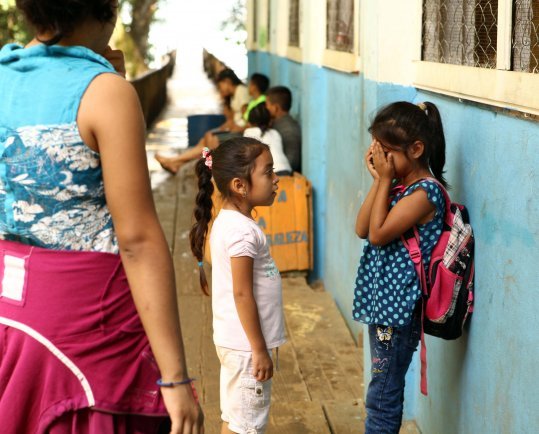When we’re empathetic towards somebody, we put ourselves in their situation for a moment, we wonder how they feel, how they see the world and the situation in which they find themselves. It’s a bit like looking at reality through their glasses.
Differences matter
Empathy can be practised from an early age. Already a three year old is able to understand that others have feelings and that they differ depending on the situation. So try to encourage your child to look at the world through the eyes of other household members and you try to take the child’s perspective too. Remember that each of us has the right to interpret what we see in our own way, to feel what we feel and to have individual needs. These differences are worth talking about.
Empathy glasses
Empathy glasses are a game to help you and your family look at certain situations from a different perspective. Let everyone at home prepare their own empathy glasses and decorate them in their own way. Then exchange them and practise looking at your home and your current affairs from the perspective of the person whose glasses you have on. It can be interesting!
Recognition of feelings and emotions
When you’re watching a film with your child, pay attention to situations in which you can try to guess how someone may feel. Talk to your child about how these people may feel. What gestures, facial expressions and tones of voice does the child associate different emotions with. Allow your imagination to run wild and consider the following: if you were in the character’s situation, how would you feel and how would you react? And on the other hand, how would you show this person that you are listening to them? That you care about them? Thanks to this game, even watching cartoons can be a good excuse to develop the child’s socio-emotional competences.


